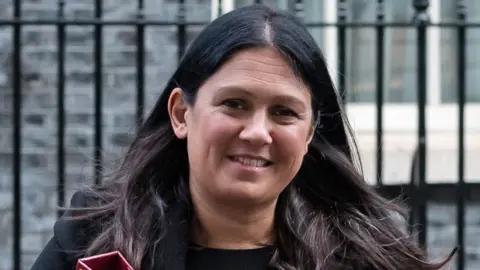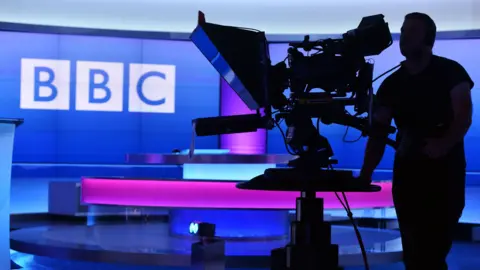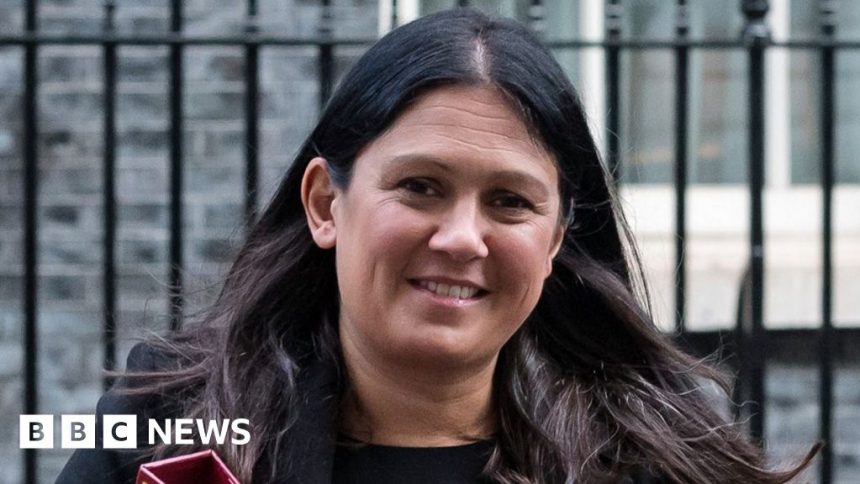Culture secretary rules out funding BBC from taxes
 Getty Images
Getty ImagesThe BBC will not be funded from general taxation if the TV licence fee is abolished, the culture secretary has said.
Lisa Nandy told BBC Breakfast the licence fee was “deeply regressive” and that she was thinking “quite radically and creatively” about alternatives.
But they do not include using money from general taxes to fund the BBC, because that could open the broadcaster up to interference from politicians who would hold the purse strings, she said.
Nandy did not rule out a subscription model for the BBC, but said there were “a whole range” of other possible options.
She said the government was “determined to grip this, and I think there is a genuine sense out there in the public that the licence fee was built for a different era”.
Nandy has started negotiations with the BBC about the corporation’s funding after its current royal charter expires in 2027.
The charter, drawn up by the government, sets out the terms and purposes of the BBC’s existence and normally lasts for about a decade.
The corporation currently gets most of its income from the licence fee, which costs £169.50 a year.

Nandy said: “There’s a whole range of alternatives, and we haven’t committed to any of them. I think the one that has been speculated about is general taxation.”
However, that is “not something that we’re considering” because “it’s important that we have free and fair broadcasting in this country that is able to hold the government to account”, she continued.
“But there is no question in my mind that the licence fee is not only insufficient, it’s raising insufficient money to support the BBC, but it also is deeply regressive.
“We’ve seen far too many women prosecuted over recent years for being unable to pay it, and it’s a flat fee that means that poorer people pay proportionately more than anybody else.
“That doesn’t help the BBC, it doesn’t help the government, and it doesn’t help people in this country, and so we make no apology for saying that we’re considering all options, and we’re thinking quite radically and creatively about how we future-proof our national broadcaster for many years to come.”
She added: “In other countries in Europe, they find different ways of raising money.
“In France, for example, they have a levy on cinemas. I’m not committing to any of these things at this stage.”
The BBC received £3.7bn from the licence fee in the last financial year, about two-thirds of its total income.
However, the corporation has said below-inflation rises in the cost of a TV licence “have chipped away at our income over many years and have put serious pressure on our finances”.
Last year, director general Tim Davie said the broadcaster’s annual savings target would rise to £700m a year by 2028.
Nandy was speaking as she prepared to host a summit for 250 cultural businesses and leaders in Gateshead, promising a £60m package of government support for the creative industries.






